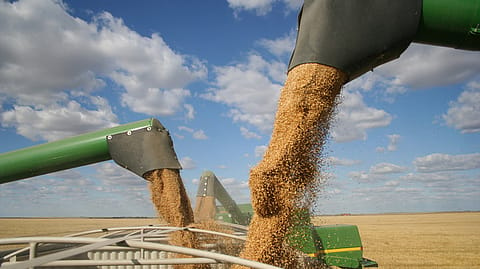India bans wheat exports
Rising global wheat prices and increased demand in overseas markets had pushed the prices of domestic supplies of wheat too.

India has banned the export of wheat with immediate effect. The government said the decision comes in the wake of the sudden spike in the global prices of wheat and the looming food security threat across several regions of the world.
"The government of India is committed to providing for the food security requirements of India, neighbouring and other vulnerable developing countries which are adversely affected by the sudden changes in the global market for wheat and are unable to access adequate wheat supplies," the wheat ban notification issued by the Directorate General of Foreign Trade says.
Rising global wheat prices and increased demand in overseas markets had pushed the prices of domestic supplies of wheat too. With India struggling to tame inflation, especially food inflation, rise in wheat prices and the supply issues it may pose if unrestricted export of wheat is allowed to continue, was posing a major headache to the government. Incidentally, the export ban comes just a week after the commerce ministry clarified that the government has no plans to ban wheat exports and was instead facilitating its exports in every possible manner. The domestic price of wheat, which had somewhat softened after talks of export ban starting going rounds, had risen again after the ministry's clarification. The ban will now keep wheat prices in the domestic market under control.
The ban will have an impact on India's overall export performance as cereals had shown a year-on-year growth of 60.83% in the month of April 2022. In terms of percentage growth, the particular commodity group was only behind petroleum products and electronic goods exports during that month. India had exported $90 million worth of cereals as compared to $55.96 million.
The DGFT notification clarified that export of wheat will be allowed in case of shipments where irrevocable letter of credit (LoC) has been issued on or before April 13, the date of notification. Exports will also be allowed on the basis of permission granted by the government to other countries to meet their food security needs and based on the requests made by those governments.